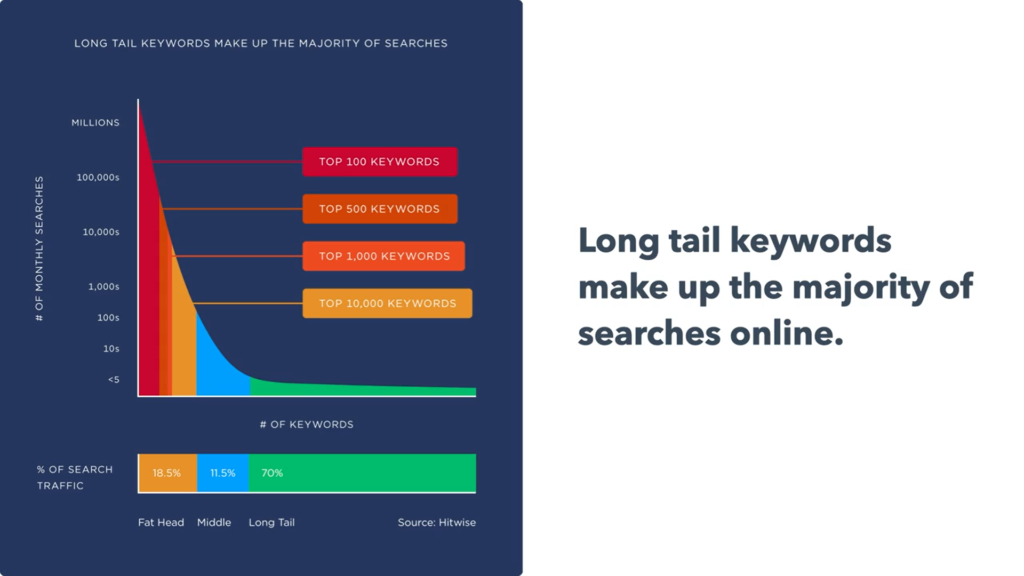Why Keyword Research is Important?

Why Keyword Research Is Important
Keyword research is the guiding force of your SEO efforts. It helps you better understand your target audience by giving you insight into what they’re actually searching for. If nobody is searching for what you’re writing about, then your site won’t receive any traffic form Google. This is where keyword research comes into play.
What Are Keywords?
The words and phrases that people type into search engines. Keyword research is the process of finding and analyzing search terms that people enter into search engines with the goal of using that data for a specific purpose.
Keyword Research Helps You Answer Questions Like:
- What are people searching for?
- How many people are searching for it?
- What format do they want to receive information in?
- How difficult will it be to rank for that search query?
In the field of keyword research there are a few different types of search terms. These are often referred to by different names, but they all mean the same thing. Let’s call them head terms, body keywords, and long tail keywords.
# What Are Head Terms?
Head Terms (or fat head) are usually single-word keywords with lots of search volume and competition (e.g. marketing, insurance).
# What is Search Volume?
The number of times a particular keyword is entered into a search engine per month. This phrase comes up a lot in the SEO space, especially when it comes to keyword research.
# What are Body Keywords?
Chunky middle (or Body Keywords) are 2-3 word phrase with decent search volume, but slightly more specific than head terms and with slightly less competition (e.g. marketing automation, car insurance).
# What are Long Tail Keywords?
Long tail keywords are more specific phrases that don’t get as much search volume but tend to less competitive.
Long tail keywords make up the majority of searches online, but long tail doesn’t simply mean the keyword is very long. This is a common misconception.
Read more: How Local SEO Is Different From Regular SEO and Why Its Important?
Long tail actually refers to the long tail of the demand curve, not the number of words in the search query. Queries that have many specific variations all looking for related information are known as having a long tail because they have less search volume, these phrases are generally easier to rank for than the highly competitive head terms.
# Long Tail Keywords Make up The Majority of Searches Online

Here Are a Few Examples of Long Tail Keywords Are:
- “How to apply sunscreen”
- “How often should you apply sunscreen”
- “When to apply sunscreen”
- “Best sunscreen ingredients”
- “Best natural sunscreen for kids”
There are lots of different variations of these keywords. Your keyword strategy should contain a mix of Long tail and Body keywords guided by Head terms. If a Head term has a lot of search volume, chances are that the long tail and body keywords under it will have enough volume to be worth creating content for.
These keywords will be less competitive to rank for and, when you do rank for them, add up to the amount of traffic you would get if you ranked for the Head term.

# Focus on Building Topical Relevancy
Your main focus should be on building topical relevancy. Keyword tells you which topics people care about. Your goal is to build up a library of helpful content on topics related to your business.
Matching keywords exactly isn’t as important as it once was. What is important is establishing your expertise on relevant topics by creating lots of high quality, helpful content.




